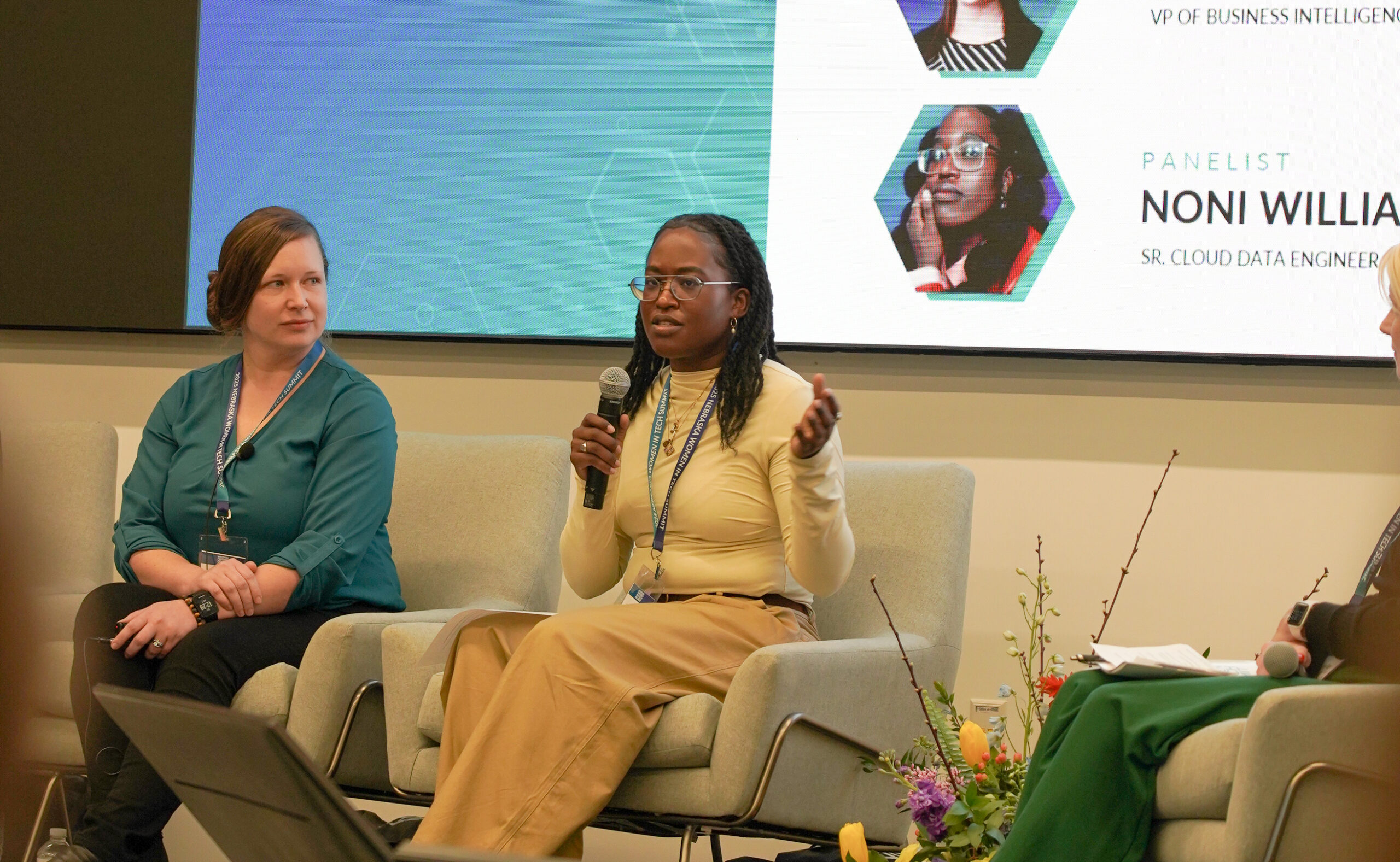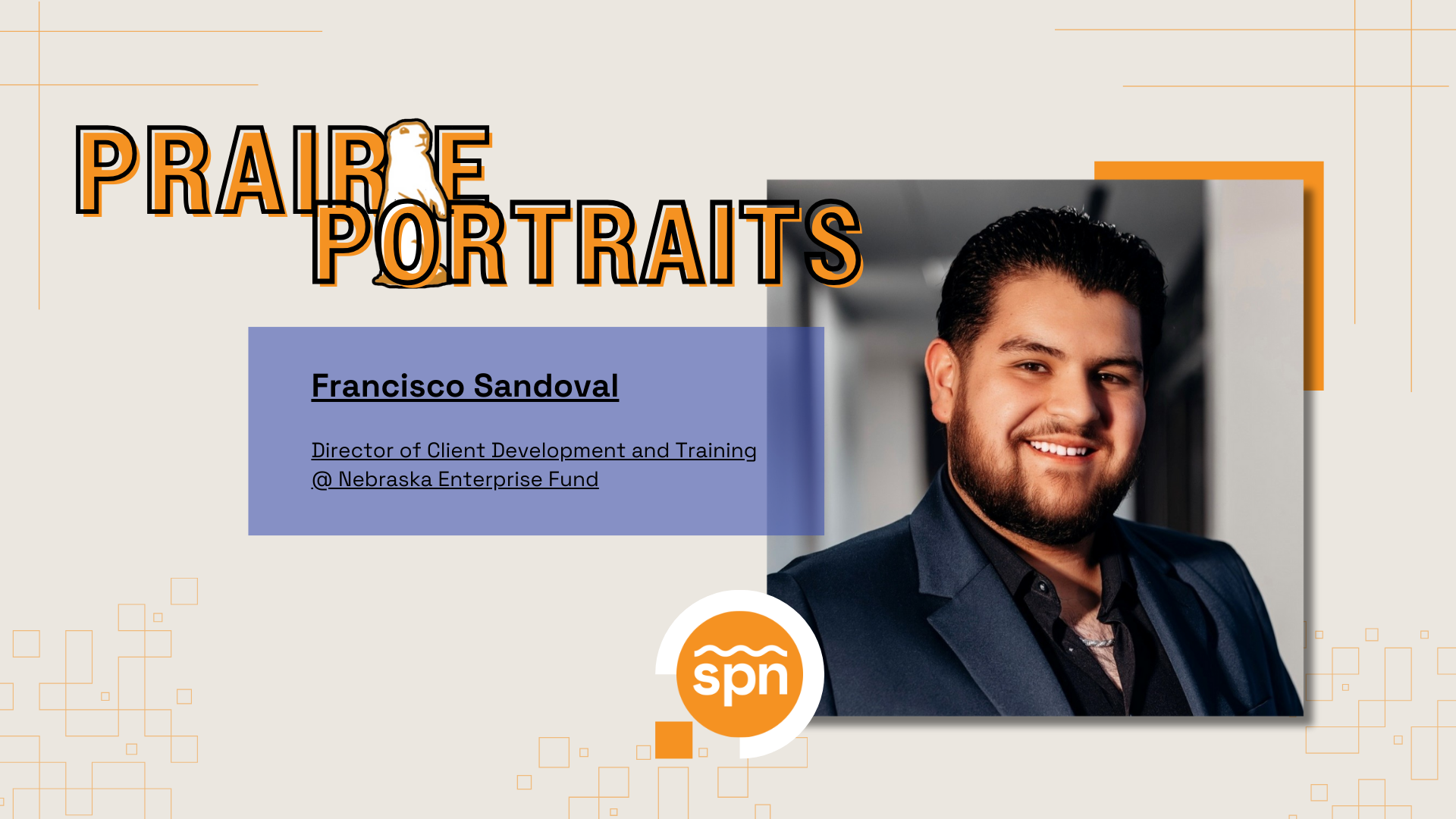Meet Jenilee Woltman, Founder and Speech-Language Pathologist @ Sand Canyon Therapy / Founder and Creator @ Mission Accomplished
Mission Accomplished is an app that offers kids digital resources to help track their emotions and daily tasks, and gives parents connected solutions to be involved with their kids’ journeys. Woltman’s background with supporting neurodiverse children and their families inspired her to make the app — both as a parent going through similar struggles and as a practitioner at her speech-language pathology clinic based in Hemingford, Nebraska.
What inspired you to become an entrepreneur or support other entrepreneurs?
It really started with seeing a need that just wasn’t being met, both as a parent and as a professional. Working as a speech-language pathologist in rural Nebraska, I kept encountering the same issue: Families were doing everything they could, yet were still struggling to find tools that genuinely supported their neurodivergent children in a meaningful, everyday way. And having a neurodivergent child myself, I felt that deeply.
So I thought, “Why not build what we need?” That’s how Mission Accomplished was born. I didn’t set out to be an entrepreneur; I just wanted to make life better for families like mine. But entrepreneurship gave me a way to take what I knew from therapy rooms, classrooms and my own home, and turn it into something scalable, practical and rooted in real-life experience. Now, I get to build something that helps not just my community, but hopefully many others as well.
What advice would you give yourself if you could go back in time to when you were just starting out?
I’d tell myself: You don’t have to have it all figured out to get started. And waiting for the “perfect” plan will slow you down. Your lived experience, your passion and your gut instinct — that’s enough to take the first step.
I’d also say: Bring in people early. Don’t try to do everything on your own. Listen to parents, kids, teachers and therapists. Let their stories guide you. And be open to learning from others who think differently — tech developers, business mentors and other entrepreneurs. You don’t need to know everything — you just need to be willing to build something with your community, not just for it.
How do you stay motivated when things feel overwhelming — or stagnant?
Honestly, I go back to why I started. I didn’t become a speech-language pathologist straight out of school. I became one later in life because I couldn’t get the help my own child desperately needed. Living in rural Nebraska, we didn’t have easy access to specialists or support. I saw how big the gaps were, and I just couldn’t sit back. So I decided to become part of the solution.
That same drive is what keeps me going with Mission Accomplished. I see this software as the next way I can keep solving a problem that still affects so many families, especially out here, where resources are limited but the need is huge.
When things get hard, I think about the kids I’ve worked with, the parents I’ve sat across from who are doing their best with what little they have, and how something like this tool could really change their day-to-day life. I care deeply about my patients and the people in my community, and I want rural Nebraska to know we don’t have to be left behind.
We can lead in innovation. Technology gives us a chance to do that — to create things that work for us, right where we are. That’s what motivates me: knowing we’re building something meaningful, from Nebraska, for the people who need it most.
What is the biggest challenge you’ve overcome and how did you overcome it?
One of the biggest challenges was figuring out how to apply everything I knew from years of working with kids in therapy — and as a parent — to create a tech product. I’m not a developer. I didn’t know the first thing about AI or how to build an app when this started. It was intimidating to step into a world full of technical terms, user flows and software sprints when my background was all about people, communication and care.
But I didn’t let that stop me. I remained curious, asked numerous questions and ensured that I surrounded myself with intelligent, empathetic individuals who shared my passion for the mission. We built the app side by side with parents, educators and therapists — real people who know what these challenges look like in everyday life. Their feedback grounded us, and their stories kept us going, especially when the tech side felt overwhelming.
In the end, it wasn’t about becoming a tech expert — it was about staying connected to the problem we were trying to solve and ensuring the solution truly worked for the people who needed it most.
How can the Nebraska community support you?
Just showing up means a lot. Whether it’s helping us get the word out, introducing us to a local school or inviting us into conversations about education, mental health or innovation, we welcome it all.
We’re proud to be building this in rural Nebraska, and we believe this kind of technology can help level the playing field for families who don’t always have access to the resources they need. So whether you’re a parent, a teacher, a therapist or someone passionate about tech and community impact, we’d love to connect.
Support can take many forms, including joining a pilot program, providing feedback, helping us secure funding or simply believing in what we’re doing. When Nebraska lifts up its own innovators — especially those solving real problems for rural communities — it creates momentum we can all be proud of.



